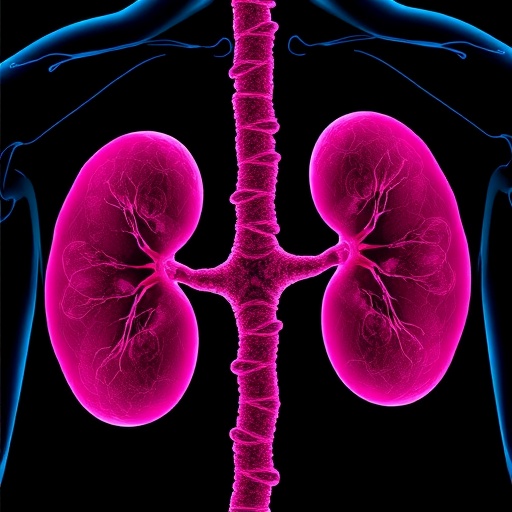
In a groundbreaking study published in the European Geriatric Medicine journal, researchers have unveiled alarming insights into the knowledge and attitudes towards delirium among healthcare providers in Egypt. Conducted by a team led by S.N. Rohaiem, alongside co-authors M.M. Wahdan and A.F.A. Hassan, this multi-centered survey sheds light on a critical aspect of geriatric care that resonates far beyond the borders of Egypt. As the population ages and the incidence of delirium rises, understanding how medical professionals perceive this condition is paramount to improving patient outcomes.
Delirium is a multifaceted neurocognitive disorder that typically manifests as an abrupt change in mental status, characterized by confusion, disorientation, and fluctuations in attention. Despite its prevalence, particularly among older adults, it remains under-recognized and often inadequately addressed by many healthcare providers. The survey’s findings, derived from a diverse sample of physicians and pre-registration house officers, reveal a concerning gap in knowledge that could have substantial ramifications for patient care.
The study’s methodology engaged a diverse cohort from various medical facilities, ensuring a comprehensive representation of the healthcare landscape in Egypt. This approach not only strengthens the validity of the findings but also reflects the multi-dimensional nature of healthcare delivery, where varying levels of education, training, and experience shape the perceptions of delirium. Participants were surveyed using a carefully crafted questionnaire designed to assess both theoretical knowledge and practical attitudes toward the condition.
One of the standout revelations from the survey is the inconsistency in the understanding of delirium’s diagnostic criteria among healthcare professionals. While many respondents were cognizant of delirium as a clinical entity, a significant number struggled with its distinguishing features, leading to potential misdiagnoses. Misunderstanding the nuances of delirium can severely hinder the effectiveness of treatment protocols and care strategies aimed at vulnerable elderly populations.
Moreover, the study highlighted the prevailing misconceptions surrounding the causes and risk factors associated with delirium. Participants often attributed the condition to aging alone, overlooking other critical elements such as medication effects, underlying medical illnesses, and environmental triggers. This narrow perspective poses risks, as it diminishes the proactive measures that can be taken to mitigate delirium in at-risk populations.
The researchers also probed the attitudes of healthcare providers toward the management of delirium. Alarmingly, many respondents expressed a level of detachment or resignation regarding their role in recognizing and treating the condition. Such attitudes underscore a potential crisis in geriatric care, where the lack of urgency or perceived responsibility may translate into delayed interventions and consequently poorer outcomes for patients experiencing delirium.
Training and education appear to be crucial components in addressing the knowledge gap surrounding delirium. The survey revealed that a significant proportion of healthcare providers received minimal formal education on the subject during their training. This finding resonates with ongoing discussions in medical education about the need for curricula that adequately cover the complexities of geriatric syndromes, including delirium. Enhanced training could empower providers to better recognize and manage this critical condition.
The implications of these findings extend beyond Egypt; they highlight a global issue within healthcare systems. Delirium is not just a localized concern but a phenomenon that demands a unified approach to education and practice. Countries grappling with similar challenges may benefit from Egypt’s insights, prompting collaborative efforts to refine training programs and enhance delirium management guidelines.
Interestingly, the study also brings to light the role of institutional culture in shaping attitudes toward delirium. In environments where interdisciplinary collaboration is fostered, healthcare providers reported feeling more confident in managing delirium. This observation suggests that cultivating a culture of teamwork could serve as a key strategy in improving delirium care, encouraging healthcare professionals to share knowledge and support one another in recognizing and addressing this prevalent condition.
Once the findings of this study are disseminated, they present an opportunity for policy initiatives aimed at elevating standards of care for delirium. Engaging medical associations, educational institutions, and healthcare organizations can facilitate the development of resources and training that specifically target delirium awareness and management. Collaborative initiatives could include workshops, online courses, and comprehensive guidelines tailored to bridge the knowledge gap identified in this survey.
As Egypt continues its journey towards enhancing healthcare delivery, the insights from this study could serve as a catalyst for change. Public awareness campaigns that highlight the importance of recognizing delirium can also play a pivotal role in bolstering support for affected families and caregivers. Empowering family members with knowledge can lead to earlier identification and more effective interventions, ultimately safeguarding the health and well-being of the elderly.
In light of these findings, the authors urge healthcare stakeholders to prioritize delirium in clinical practice frameworks. They recommend implementing routine screening protocols for delirium in hospital settings, ensuring that healthcare providers are equipped with the necessary tools and training to identify and manage this condition effectively. Recognizing that delirium is not just a fleeting issue but a significant indicator of underlying health concerns can facilitate timely interventions and potentially improve patient outcomes.
The study conducted by Rohaiem and colleagues serves as a clarion call for action—a reminder that healthcare professionals must stay vigilant and educated about the nuances of delirium. As the medical community mobilizes to address the challenges posed by this condition, their findings may resonate across borders, ultimately contributing to enhanced geriatric care worldwide.
In conclusion, the survey conducted in Egypt adds an essential layer of understanding to the global discourse on delirium. The knowledge and attitudes of healthcare providers directly impact the quality of care delivered to some of the most vulnerable populations. As we move forward, it is imperative that we build on these insights to foster a more informed, proactive approach in addressing delirium, ensuring that no patient is left behind in their most critical times of need.
Subject of Research: Knowledge and attitudes toward delirium among healthcare providers in Egypt.
Article Title: Knowledge and attitudes toward delirium: a multi-centered survey in a sample of physicians and pre-registration house officers in Egypt.
Article References:
Rohaiem, S.N., Wahdan, M.M. & Hassan, A.F.A. Knowledge and attitudes toward delirium: a multi-centered survey in a sample of physicians and pre-registration house officers in Egypt.
Eur Geriatr Med (2025). https://doi.org/10.1007/s41999-025-01281-1
Image Credits: AI Generated
DOI: https://doi.org/10.1007/s41999-025-01281-1
Keywords: Delirium, Healthcare Providers, Geriatric Care, Medical Education, Egypt.
Tags: delirium awareness among healthcare providersEgyptian medical professionals attitudesgeriatric care in Egypthealthcare knowledge gapsimproving geriatric patient careinsights into delirium recognitionmental health in aging populationsmulti-centered healthcare surveysneurocognitive disorders in older adultspatient outcomes in delirium managementtraining for delirium diagnosis




